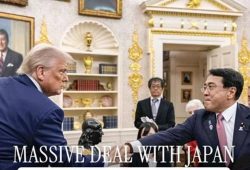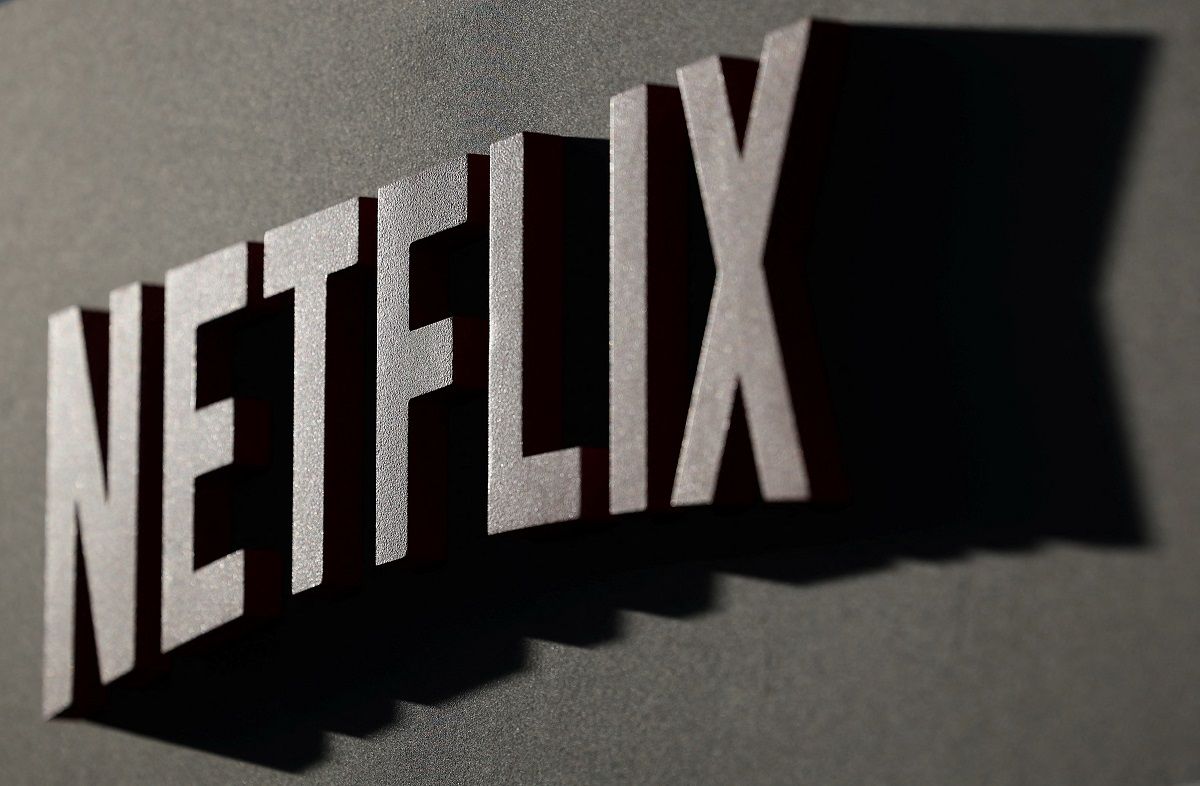
A Netflix logo is pictured in Los Angeles, California, U.S., September 15, 2022.
15:10 JST, April 10, 2023
SINGAPORE – As Netflix rapidly expands in Southeast Asia, the company’s commitment to artistic expression is being repeatedly tested by governments that have sought to control what their citizens watch and hear, according to former employees, industry observers and rights activists.
Netflix has already accommodated at least a dozen government requests that titles be removed from the service, according to company reports, and been caught in the middle of heated debates over how the company should be regulated. These challenges come just as Netflix, which is losing subscribers in North America, looks increasingly to Asia, and specifically to the emerging economies of Southeast Asia, to fuel growth.
Since 2020, the company has opened up offices in Thailand, Indonesia and the Philippines and begun negotiations to enter Vietnam, where other major American tech companies have refrained from situating employees because of security concerns. The streaming giant has also licensed hundreds of local films and television shows in Southeast Asia and commissioned more than a dozen pieces of original content.
Malobika Banerji, Netflix’s director of content for Southeast Asia, said the firm sees “a lot of untapped potential” in the region of 686 million people, which has rapidly come online over the past decade. Other streaming companies agree: Amazon recently launched local versions of its Prime Video platform in three Southeast Asian countries, and Disney Plus in November unveiled its second slate of original content in Southeast Asia, following an initial showcase in 2021. Both companies said they comply with local regulations in all countries where they operate.
Governments have welcomed the foreign investment – even as they’ve tried to assert control over content.
Of the 18 titles that Netflix agreed to block in part or in full from 2016 to 2021, more than half were requested by governments in Southeast Asia, according to the company.
The Philippines has pulled two episodes of an Australian spy show for showing maps of the South China Sea that officials said violated Philippine sovereignty.
Singapore, which has made the most takedown requests of any country in the world, has removed content seen as glorifying drug use.
In Indonesia, which routinely censors LGBTQ content, the broadcasting commission is pushing parliament to give it oversight over streaming companies.
And in Vietnam, a South Korean drama was nixed after the government said a character who played a war veteran made a statement about the Vietnam War that “offended the nation and the nation’s heroes.” Vietnamese legislators recently mandated that streaming services obtain licenses and establish legal entities in the country to continue operating there.
Netflix has been working with academics and consultants to evaluate risks and opportunities in Vietnam, and late last year, the company asked for help in ascertaining what the government considers offensive or inappropriate content, according to one expert who was approached. This came just as Netflix executives began exploring the possibility of opening an office in the country, meeting last December with officials at the Ministry of Planning and Investment in Hanoi.
Netflix, whose Asia-Pacific operations are headquartered in Singapore, declined to answer questions on censorship or takedown orders. The company instead pointed to its annual reports, which disclose takedown requests.
Last year, in an update to a memo that sets guidelines for the company’s employees, Netflix said “artistic expression” was one of its core values. “Not everyone will like – or agree with – everything on our service,” the memo said, but Netflix does not believe in “censor[ing] specific artists or voices.”
A professional in the streaming industry with knowledge of Netflix’s operations in Southeast Asia said that while the company often pushes back on takedown requests, it believes it’s better to comply with them than risk having its entire catalogue blocked. The professional spoke on the condition of anonymity because they had not been authorized by their organization to speak about Netflix.
Elsewhere in the world, Netflix has at times resisted censorship. In 2020, the company successfully defied a Brazilian judge’s request to remove a satirical film depicting Jesus as a gay man by filing a complaint in the country’s Supreme Court. The company hasn’t raised similar legal objections in Southeast Asia.
Three former Netflix employees said the company’s willingness to accommodate political sensitivities in the region goes beyond takedown requests and also influences, for example, what content it commissions or licenses. All three still work in the streaming industry and spoke on the condition of anonymity for fear of reprisals from the company.
Kian Vesteinsson, an analyst at Freedom House, said the wave of censorship in Southeast Asia that in recent years buffeted social media platforms like Facebook and YouTube is now striking streaming companies. Businesses like Netflix can have social impact, Vesteinsson said, but only if they view their platforms “as spaces for free expression . . . and access to information, not just conduits for entertainment.”
Netflix added 5.3 million subscribers in the Asia-Pacific last year, losing nearly a million in North America, according to financial reports. Over the next five years, Asia-Pacific is likely to account for 60 percent of the company’s net additions to global subscriptions, according to a forecast by Ampere, a London-based media analytics firm.
At the same time, Netflix is ramping up investment, planning to spend $1.9 billion in 2023 on local content production in the Asia-Pacific, said Media Partners Asia, a Singapore-based research agency.
In 2020, shortly after Indonesia’s education and culture minister unveiled a partnership with Netflix to boost domestic film development, the country’s biggest telecommunications company, Telkom Group, which had earlier said the platform contained “inappropriate content,” lifted its four-year ban on Netflix and now offers broadband bundles that include Netflix subscriptions.
But conservatives have continued to call for censorship. As Indonesia legislators debate a new streaming services law, the country’s broadcasting commission says it has received “many, many complaints” of Netflix showing what the country considers illegal content, said Chairman Agung Supriyo. He gave the example of “Rocco,” a documentary on the Italian pornography star Rocco Siffredi that was in Netflix’s catalogue until recently. As things stand, Supriyo added, there are “no standards at all” over what’s allowed on the platform.
In Singapore, all streaming companies are subject to a content code, said a spokesperson for the country’s Infocomm Media Development Authority. “Where the content does not comply,” the spokesperson said, IMDA will request that it is taken down.
In Vietnam, the government recently passed legislation to punish companies providing films over the internet if the companies do not submit a list of their titles to the Ministry of Culture. Fears are rising in Vietnam of “being dominated by foreign influence,” said Vu Tu Thanh, the Vietnam country representative for the US-ASEAN Business Council. When it comes to streaming, Thanh added, “what the industry refers to ‘content moderation’ in the Vietnamese context should really be understood as content control.”
Still, faced with declining subscriptions elsewhere, companies are pushing to make inroads into Vietnam. In March, weeks after the government threatened again to block streaming services that did not establish legal entities in Vietnam, Netflix executives joined a major delegation of U.S. firms to visit the country.
The trip was led by the US-ASEAN Business Council, which in 2022 signed an agreement with the Vietnamese government to improve business conditions for the tech industry. Council president Ted Osius said the agreement is a “meaningful framework” that allows American tech companies, including Netflix, to influence how they’re being regulated, even as they make “practical accommodations” to operate in the country.
Streaming companies recognize that governments have certain “anxieties” over content, said Louis Boswell, chief executive of the Asia Video Industry Association, a trade group that counts among its members Netflix, Disney Plus and Amazon. He cited the example of Thailand’s notoriously tough lèse-majesté laws, which make it a crime to insult members of the royal family. “We, as an industry, don’t really want to get into a debate over whether we agree with that rule or not,” he said, adding, “I don’t think most of our members are out there to try to push the envelope on that.”
Instead, Boswell said, streaming companies have tried to persuade officials in Southeast Asia that the firms shouldn’t be regulated like traditional broadcasters or social media platforms. Tools like parental controls and content advisories on streaming sites allow users to “self-regulate,” making government censorship “redundant,” he said.
– – –
Gerrit De Vynck in San Francisco, Winda Charmila in Jakarta and Nhung Nguyen in Ho Chi Minh City contributed to this report.
"News Services" POPULAR ARTICLE
-
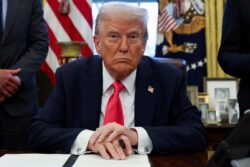
Trump Announces Trade Deal with Japan, Including 15% Tariff (UPDATE 1)
-
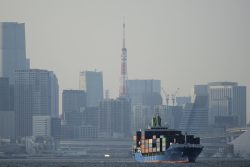
Trump to Put 25% Tariffs on Japan and South Korea, New Import Taxes on 12 Other Nations
-

Japan’s Nikkei Stock Average Soars to One-Year Peak on Trade Deal; Bonds Slide
-

Japan’s Nikkei Stock Average Falls as Traders Lock in Gains after US Trade Deal Rally (UPDATE 1)
-

South Korea, Japan and US Conduct Air Drill as Defence Chiefs Meet
JN ACCESS RANKING
-

Lawson to Offer Car Camping Service at Select Stores; 6 Chiba Stores to Offer Service from Monday
-

Japan Real Wages Fall for 5th Month in May
-
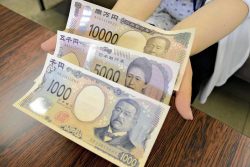
New Banknotes Account for Only 30% of All Bills in Circulation; Increased Use of Cashless Payments Seen as Cause of Slow Adoption Rate
-

Govt Mandates Collecting, Recycling of Some Devices with Lithium-Ion Batteries Amid Fire Concerns
-

Typhoon Nari Approaching Japan’s Kanto Region; Heavy Rain, Strong Wind Expected on Monday
















